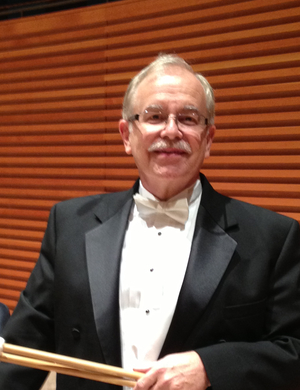
Photo credit: Brian Rood
The lack of diversity in the orchestral world is frequently, and increasingly, lamented. The subject has been a topic at the League of American Orchestras (LAO) over the past several years, where it has been a point of growing concern. In comments on the subject last spring from the LAO’s website, League President Jesse Rosen was correct when he observed, “If the arts community is to accelerate progress in the areas of diversity, inclusion and equity, we must all, especially national leaders, be prepared to navigate difficult conversations. When it gets uncomfortable, you’re probably in the right place.”
In addressing these issues, much has been written about the ethnic diversity of our orchestra musicians, and this is an appropriate place to begin. However, if our industry is to effectively take on the issue, it must be as part of an overarching look at orchestras’ relevance to their individual communities (and with an eye towards expanding the audience base). To effectively make a difference, we need to venture beyond just orchestra personnel and examine additional opportunities where orchestras could diversify. For example:
- The ethnic diversity of the composers that make up our various concert series. For well over a century, there has existed a plethora of published symphonic works by composers from the Americas that we rarely hear about, much less perform. Concertgoers in these countries enjoy the European masterworks as much as we, but they also enjoy works by composers from their part of the world occasionally added to the mix, which could work nicely here, as well. All too often however, these composers have gone almost completely unnoticed in the USA.
- Over the years, we have often heard it asserted that our Pops, Summer, and Education outreach concerts also act as feeders to the box office for the Masterworks series. This outreach should apply to all our communities. Adding in a few of these aforementioned works into our season would wisely be balanced by also seeking out opportunities to perform in more diverse neighborhoods. An unwillingness to do so might even be perceived as condescending towards the very people our Orchestras would be attempting to engage.
- Orchestra offices that hire interns should seriously recruit young Latino or African Americans in the future to give them a “from the ground up” experience of orchestra management. Those that go on to a career in the field can be enormously helpful in adding their perspectives which can serve to broaden the attitude and vision of the management team. Likewise, as the League continues to revamp its training and education programs for people aspiring to a career in management, a strong focus on recruiting Latino and African Americans for these programs would be beneficial.
- I wish the League success in its endeavors to support increased diversity within our Orchestra Boards, which in some cities can be rather averse to looking beyond their traditional networks for nominating new members. I applaud their endeavors to take on the subject, as tackling it effectively will require having some of those challenging discussions with their member orchestras that Rosen referenced.
In sum, it’s a much broader subject than just the aggregate ethnic diversity of our Musicians. The more one delves into the issue, the bigger and more complicated it seems to become. But as JFK once observed, great challenges often come with great opportunities. The musicians of ICSOM have gladly collaborated with their administrations when orchestras have spearheaded programs to instruct and mentor minority students; and as we look ahead, ICSOM musicians welcome the opportunity to join the conversations dealing with this complex issue.
As some of you may already know, after much thought and consideration, I have decided not to seek a second term as ICSOM President. The privilege of being able to serve you in this role for the past two years has truly been an honor just as serving with the members of your Governing Board has been an amazing education! I consider my eleven total years with ICSOM as Delegate, Alternate, and finally President to have been the pinnacle of my professional career, and the people of ICSOM with whom I have worked made it so for me. I will miss them all (but my wife and I will certainly enjoy seeing more of one another). I thank you all for giving me the opportunity to serve.





